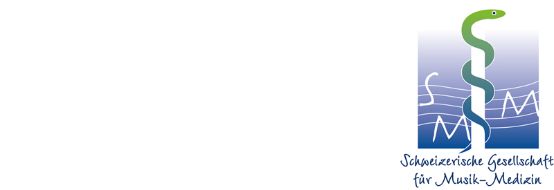Musicians with hearing aids?Completely impossible
If an orchestra were all spectacle wearers, we wouldn't think anything of it. An orchestra full of hearing aid wearers, we would probably be a little irritated. In fact, the issue of hearing loss is a difficult one for musicians.However, state-of-the-art technology also offers good solutions for them.

In their daily work, musicians are exposed to sound levels that have a damaging effect on hearing above a certain dose. And so, unfortunately, even Mozart becomes noise for the ears at some point. Much is being done to protect them from hearing damage, and there are good, sound-neutral hearing protectors, both off-the-shelf and customized. The problem, however, is that very quiet music comes out of nowhere, and in order to hear such passages and cues with 100% accuracy, even a small amount of hearing protection is too much for many people.
It's just a shame when the orchestra tutti produces volume levels of 90 or 100 dB in the next movement. What happens then is what the ear doctor calls the "c5 depression": a noise-induced hearing loss that manifests itself most strongly in the area of the five-letter c at around 4000 Hz. This is exactly where the consonants that are important for understanding speech are located. If the hearing is damaged there, the table becomes a fish and the river becomes a kiss, which can lead to embarrassing situations.
It is well known that those affected try to get by without hearing aids for years. They develop different strategies to cover up the hearing loss: one of them is to avoid difficult situations, such as the acoustically notorious cocktail party. If "normal people" find it so difficult to wear hearing aids, how much more difficult must it be for musicians to imagine performing in front of an audience with hearing aids? For many, almost unthinkable.
Modern hearing systems are very small and can be almost perfectly concealed, provided you have the right hairstyle. For those without the necessary hair, however, the devices are not so inconspicuous. They either sit behind the ears, with a small tube in the ear canal, or they sit directly in the ear. Unfortunately, you can often still see them there because the electronics are too big for the ear canal.
Recently, however, there are now truly 100% invisible hearing systems. These are placed four millimetres in front of the eardrum and remain there for up to four months, day and night. In contrast to conventional high-performance hearing systems, they are equipped with relatively little technology and functionality. They work with the so-called "Wide Dynamic Range Compression", according to which the amplification is constantly adapted to the acoustic environment.
You have to imagine that signals in a quiet environment are amplified disproportionately and that signals in a loud environment are attenuated by means of compression. For the hearing impaired, this has the dual advantage that quiet signals can be heard and that loud signals are not perceived as unpleasant. The maximum volume that the devices generate across the entire frequency range is 103 dB. This means that a brilliant "grand finale" with the devices will be somewhat less loud than in reality. This is because the deep and acoustically tight fit of the devices almost acts as hearing protection.
Not every musician or music lover will accept this limitation. For those who have no problem seeing their hearing systems, very powerful technologies are available that can process input levels of up to 106 dB. It is important that you seek professional advice and work with your hearing care professional to program the system based on your own music. This requires specialist knowledge and the appropriate infrastructure.
If you don't want your hearing aid to be visible, I can fully understand that. I wore conventional hearing aids myself for 15 years until I switched to these new, invisible ones. I understand everyone who wants a discreet solution.
Either way, if you can no longer hear the conductor's announcements or the pianissimo of your colleagues, you should do something as soon as possible.
> www.stueckelberger- hoerberatung.ch








